Related Research Articles
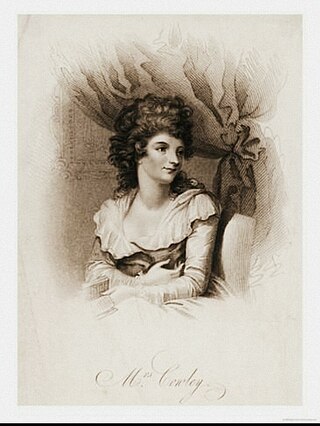
Hannah Cowley was an English playwright and poet. Although Cowley's plays and poetry did not enjoy wide popularity after the 19th century, critic Melinda Finberg rates her as "one of the foremost playwrights of the late eighteenth century" whose "skill in writing fluid, sparkling dialogue and creating sprightly, memorable comic characters compares favourably with her better-known contemporaries, Goldsmith and Sheridan." Cowley's plays were produced frequently in her lifetime. The major themes of her plays – including her first, The Runaway (1776), and her major success, which is being revived, The Belle's Stratagem (1780) – revolve around marriage and how women strive to overcome the injustices imposed by family life and social custom.
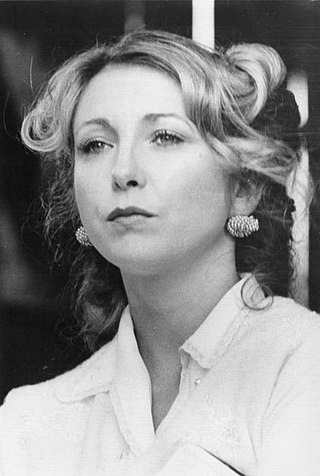
Teri Ann Garr is an American former actress, dancer, and comedian. She has frequently appeared in comedic roles throughout her career, which spans four decades and includes over 140 credits in film and television. Her accolades include an Academy Award nomination, a BAFTA Award nomination, and a National Board of Review Award.
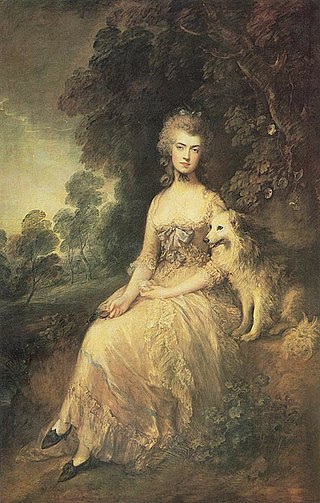
Mary Robinson was an English actress, poet, dramatist, novelist, and celebrity figure. She lived in England, in the cities of Bristol and London; she also lived in France and Germany for a time. She enjoyed poetry from the age of seven and started working, first as a teacher and then as actress, from the age of 14. She wrote many plays, poems and novels. She was a celebrity, gossiped about in newspapers, famous for her acting and writing. During her lifetime she was known as "the English Sappho". She earned her nickname "Perdita" for her role as Perdita in 1779. She was the first public mistress of King George IV while he was still Prince of Wales.
Barton Booth was one of the most famous dramatic actors of the first part of the 18th century.
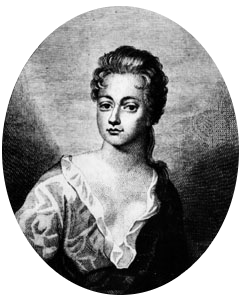
Anne Bracegirdle was an English actress.

Mickey's Once Upon a Christmas is a 1999 American animated Christmas anthology comedy fantasy film produced by Walt Disney Television Animation. The film includes three features: Donald Duck: Stuck on Christmas, A Very Goofy Christmas and Mickey and Minnie's Gift of the Magi. Other Disney characters also make cameos in the film.
George Powell was a 17th-century London actor and playwright who was a member of the United Company. He was the son of the actor Martin Powell, a long-standing member of the King's Company.

Virginia "Pepper" Potts is a character appearing in American comic books published by Marvel Comics. Created by writers Stan Lee and Robert Bernstein, and designed by artist Don Heck, the character first appeared in Tales of Suspense #45. Pepper Potts is a supporting character and love interest of the superhero Tony Stark / Iron Man. The character has also been known as Hera and Rescue at various points in her history.
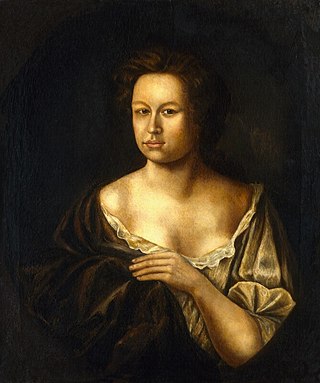
Mary Pix was an English novelist and playwright. As an admirer of Aphra Behn and colleague of Susanna Centlivre, Pix has been called "a link between women writers of the Restoration and Augustan periods".

Lisle's Tennis Court was a building off Portugal Street in Lincoln's Inn Fields in London. Originally built as a real tennis court, it was used as a playhouse during two periods, 1661–1674 and 1695–1705. During the early period, the theatre was called Lincoln's Inn Fields Playhouse, also known as The Duke's Playhouse, The New Theatre or The Opera. The building was rebuilt in 1714, and used again as a theatre for a third period, 1714–1732. The tennis court theatre was the first public playhouse in London to feature the moveable scenery that would become a standard feature of Restoration theatres.

The Convent of Pleasure is a comedic play first published by Margaret Cavendish in 1668. It tells the story of Lady Happy, a noblewoman who chooses to reject marriage in favor of creating a community - the titular “convent” - in which she and other women of noble birth can live free from the constraints of patriarchy. Like much of Cavendish's fiction, it explores utopian ideals and questions the expected roles of women in 17th-century English society.
The False Friend; or, the Fate of Disobedience is a she-tragedy written by Mary Pix, and first performed at Lincoln's Inn Fields in 1699. The play is a reworking of William Shakespeare's Othello. The original cast featured John Bowman as Viceroy of Sardinia, John Verbruggen as Emilius, John Thurmond as Lorenzo, John Hodgson as Bucarius, Joseph Harris as Roderigo, Elizabeth Barry as Adellaida, Elizabeth Bowman as Appamia, Anne Bracegirdle as Lovisa, and Abigail Lawson as Zelide.

Sir Patient Fancy: A Comedy, is a comedic play written by Aphra Behn, first performed in 1678. It is Behn's first overtly political play. It was staged by the Duke's Company at the Dorset Garden Theatre in London with a cast that included Nell Gwyn as Lady Knowell, Anthony Leigh as Sir Patient Fancy, John Crosby as Leander Fancy, Thomas Betterton as Wittmore, William Smith as Lodwick Knowell, James Nokes as Sir Credulous Easy, John Richards as Curry, Elizabeth Currer as Lady Fancy, Mary Betterton as Isabella, Emily Price as Lucretia and Anne Shadwell as Maundy.
William Bowen (1666–1718) was a British stage actor. He was part of the United Company from 1689. For a time, he became known for his comic roles. He was fatally wounded in a duel with fellow actor James Quin in 1718.
Elizabeth Willis (c.1669-1739) was a British stage actress.
Elinor Leigh was a British stage actor of the seventeenth century.
The Innocent Mistress is a comedy written by Mary Pix, first performed in 1697.
Elizabeth Bowman was an English stage actor of the seventeenth and early eighteenth century. The daughter of Sir Francis Watson, 1st Baronet she was adopted by the actor manager Thomas Betterton. In 1692 she married John Bowman and began acting at Drury Lane the following year as Mrs Bowman. She was a member of the United Company until 1695 then joined Betterton's breakaway at the Lincoln's Inn Fields Theatre.
John Hodgson was an English stage actor of the late seventeenth century. He joined the United Company in 1688 and his first recorded appearance was in The Treacherous Brothers at Drury Lane in 1690. In 1695 he was one of several actors who broke away to join Thomas Betterton's new company at Lincoln's Inn Fields. His name is sometimes written as Hudson. He was married to the singer Mary Hodgson.
Joseph Harris (c.1650–1715) was an English stage actor and playwright. His earliest known performance was in the United Company's The Bloody Brother in 1685. Earlier mentions an actor named Harris are likely to refer to an earlier lesser-known actor William Harris or even the celebrated Restoration performer Henry Harris. He remained with the United Company until 1695 when he joined Thomas Betterton's breakaway company at the Lincoln's Inn Fields Theatre. He acted there until around 1705, although some reports have him still acting as late as 1715.
References
- 1 2 3 Yebra, José M. (20 December 2014). "The flourishing of female playwriting on the Augustan stage: Mary Pix's "The innocent mistress"". Journal of English Studies. 12: 153. doi: 10.18172/jes.2828 . ISSN 1695-4300.
- ↑ Mary Pix, Susanna Centlivre, Elizabeth Griffith, Hannah Cowley (2001). Eighteenth-century Women Dramatists. Oxford University Press. pp. xii.
{{cite book}}: CS1 maint: multiple names: authors list (link) - ↑ Gary Day, Jack Lynch (editors) (2015). The Encyclopedia of British Literature, 3 Volume set: 1660-1789. John Wiley & Sons. p. 895.
{{cite book}}:|last=has generic name (help) - ↑ Grossteiner, Karin (2004). Widows, wives and virgins; women characters in the comedies of Mary Pix. Wien (MPhil thesis). p. 68.
{{cite book}}: CS1 maint: location missing publisher (link)